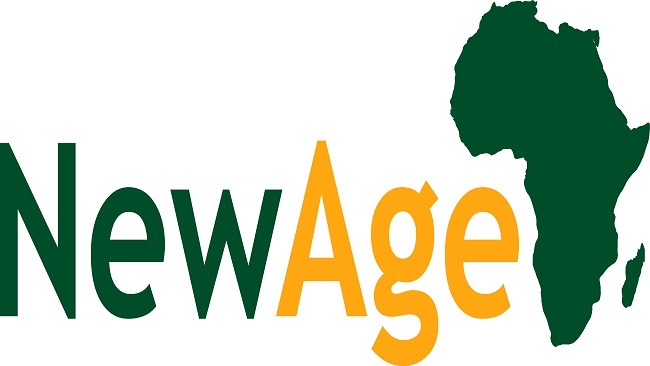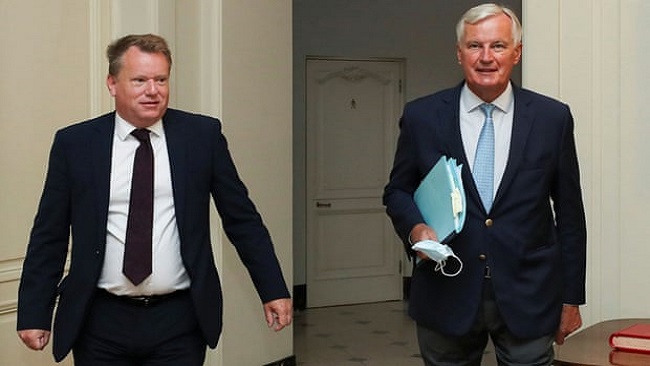26, March 2021
Suez blockage halting $9.6 billion a day of maritime traffic 0
Lloyd’s List, a shipping industry journal, says its “rough calculations” suggest that the massive container vessel Ever Given, which has blocked Egypt’s Suez Canal since Tuesday, is halting about $9.6 billion worth of daily marine traffic.
Lloyd’s List puts westbound traffic at around $5.1 billion a day and eastbound traffic at approximately $4.5 billion.
Satellite pictures released by Planet Labs Inc show the 400-meter long vessel wedged diagonally across the entire canal, one of the busiest trade routes in the world.
Lloyd’s estimates that about 165 vessels are waiting to transit the waterway, while data compiled by Bloomberg show that the figure is 185.
The Suez Canal Authority (SCA) on Thursday announced it was “temporarily suspending navigation” along the waterway, which connects the Mediterranean to the Red Sea and drastically shortens travel between Asia and Europe, as efforts by tugs and diggers to dislodge the vessel have failed.
Egyptian President Abdel Fattah al-Sisi’s advisor on seaports, Mohab Mamish, told AFP late Thursday that “maritime navigation will resume again within 48-72 hours, maximum”.
“I have experience with several rescue operations of this kind and as the former chairman of the Suez Canal Authority, I know every centimeter of the canal,” Mamish added.
However, salvage experts had warned earlier on Thursday the Suez blockage could last days or even weeks.
Vortexa senior freight analyst, Arthur Richier, said about 13 million barrels of crude oil on 10 tankers could be affected by the disruption, adding nine vessels carrying clean petroleum products, along with biodiesel, sitting outside Suez, were awaiting the resumption of northbound convoys.
How long it takes to refloat the grounded megaship will dictate further impact on markets.
According to shipping data compiled by Bloomberg, around 300 vessels globally are either stuck in the Suez Canal, waiting to transit the waterway or signaling it as their next destination.
Amid the continued closure of the waterway, shiping giants are looking into re-routing cargo ships around the southern tip of Africa.
Japanese ship-leasing firm Shoei Kisen Kaisha, the owner of the giant vessel, said it was facing “extreme difficulty” trying to refloat it.
“We sincerely apologize for causing a great deal of worry to ships in the Suez Canal and those planning to go through the canal,” it said in a statement.
On Wednesday, historic sections of the canal were reopened in a bid to ease the congestion.
In 2018, the canal was temporarily shut after a Greek-owned bulk carrier suffered engine failure that led to a five-ship collision.
Source: Presstv



























13, May 2021
Italy fines Google €100 million for shutting out rival’s smartphone app 0
Italy’s anti-trust authority said Thursday it had fined Google more than 100 million euros ($120mn) for shutting out a rival’s smartphone app offering recharging of electric vehicles.
The authority said Google, whose Android operating system and Google Play app store dominate the Italian market, had abused its market position by blocking an Enel X app for users of electric vehicles.
The regulator added it would require Google to make Enel X’s app available on Android Auto, which mirrors features of an Android device, such as a smartphone, on a car dashboard screen.
The fine of 102,084,433.91 euros is for a violation of article 102 of the Treaty on the Functioning of the European Union which regulates monopolies and issues involving restriction of competition.
Italy found Google did not allow Enel X Italia to develop an Android Auto-compatible version of its JuicePass app. JuicePass offers services relating to recharging electric vehicles, such as finding the nearest charging station and reserving a space there.
“By refusing Enel X Italia interoperability with Android Auto, Google has unfairly limited the possibilities for end users to avail themselves of the Enel X Italia app when driving and recharging an electric vehicle,” the authority stated.
“Google has consequently favored its own Google Maps app,” added the authority.
“The exclusion of the Enel X Italia app from Android Auto has been going on for more than two years, and if it were to continue, could permanently jeopardise Enel X Italia’s chances of building a solid user base at a time of significant growth in sales of electric vehicles.”
This, the body concluded, amounted to “an impoverishment of consumer choice and an obstacle to technological progress” which could influence the development of electric mobility.
The authority as a result said it had ordered Google to make available to Enel X Italia and other app developers app programming tools which are interoperable with Android Auto while adding it would monitor compliance of its ruling via an independent expert with whom Google would be obliged to cooperate.
Source: AFP